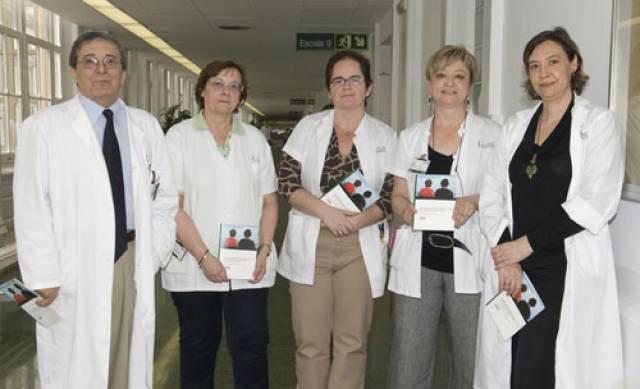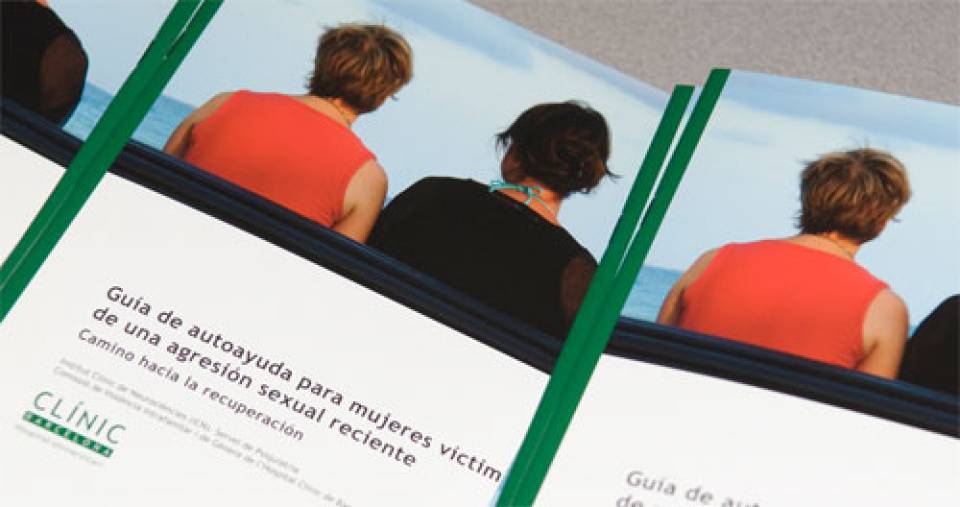The self-help guide was presented last Monday at Hospital Clínic. The presentation was attended by Dr. Raimon Belenes, CEO of Hospital Clínic; Ms. Cristina Molina, head of the Master Plan for Mental Health and Addictions of the Department of Health; Dr. Manuel Valdés, director of the Clínic Neuroscience Institute; and two of the guide’s authors - Dr. Lluïsa García-Esteve, a psychiatry consultant and Dr. Purificació Navarro, a cognitive-behavioral therapist.
Rape and sexual abuse act on the brain like an intense trauma that gives rise to important clinical symptoms. Nearly 50% of women who suffer this type of aggression suffer from severe psychiatric disorders that are often not identified as such. The psychiatry department has developed a program to carry out intervention and follow-up of the sequelae that these women may suffer and prevent disorders such as depression, post-traumatic stress and anxiety in general. After being attended by the emergency services, patients are offered the chance to visit specialists within this program who can evaluate their case and decide the most appropriate treatment - psychological assessment or drug therapy. From talking to women who have received this psychological care (approximately 100 women were interviewed), it has been found that they are aware of the reactions they might have but interpret the symptoms incorrectly.
The aim of this guide for victims of a recent sexual assault is to help these women to identify the psychological reactions that may occur in the first weeks following the attack and to request professional help if recovery takes longer than expected and the symptoms interfere with their day-to-day activities. For this reason, the guide details all the most common reactions experienced after an assault - as related by women who have been victims - and describes how these reactions manifest and why they occur. The most frequent reactions are reliving the trauma, fear and anxiety, living in a state of permanent alert, guilt, shame, etc. Special emphasis is placed on these last two symptoms, as many women who experience psychological reactions feel guilty and blame themselves for the attacker’s actions.
This self-help guide also offers advice on how to recover following an assault, such as surrounding oneself with a safe, pleasant environment, avoiding isolation and seeking the support of others. It also highlights the importance of learning about psychological reactions and requesting help when, after a reasonable length of time, the victim continues to experience intense emotional reactions and difficulty resuming daily activities. It also contains a section that provides advice for family and friends of the victims on how to provide support, as well as indicating what process to follow when reporting the crime and providing useful addresses for different types of care, from medical services to associations and foundations, information services and legal advice.

The guide has received the support of the Master Plan for Mental Health and Addictions of the Catalan Department of Health and collaboration from Obra Social Fundació la Caixa, and it aims to be of use for both victims of sexual assault and the professionals who treat them. With this aim in mind, the guide will be distributed in the centers that treat these women directly: primary care centers, district social services, information and help points for women (PIAD), mental health centers and service programs for women (PASSIR).

